9-10 May 2024


9-10 May 2024



Thursday 9 May, 7.30pm, The Usher Hall, Edinburgh
Friday 10 May, 7.30pm, City Halls, Glasgow
MENDELSSOHN Elijah (sung in English)
Interval of 20 minutes after Part I
Maxim Emelyanychev Conductor
Carolyn Sampson Soprano (The Widow)
Rowan Pierce Soprano (The Youth)
Anna Stéphany Mezzo Soprano (The Angel/The Queen)
Thomas Walker Tenor (Obadiah/Ahab)
Roderick Williams Baritone (Elijah)
SCO Chorus
Gregory Batsleer Chorus Director
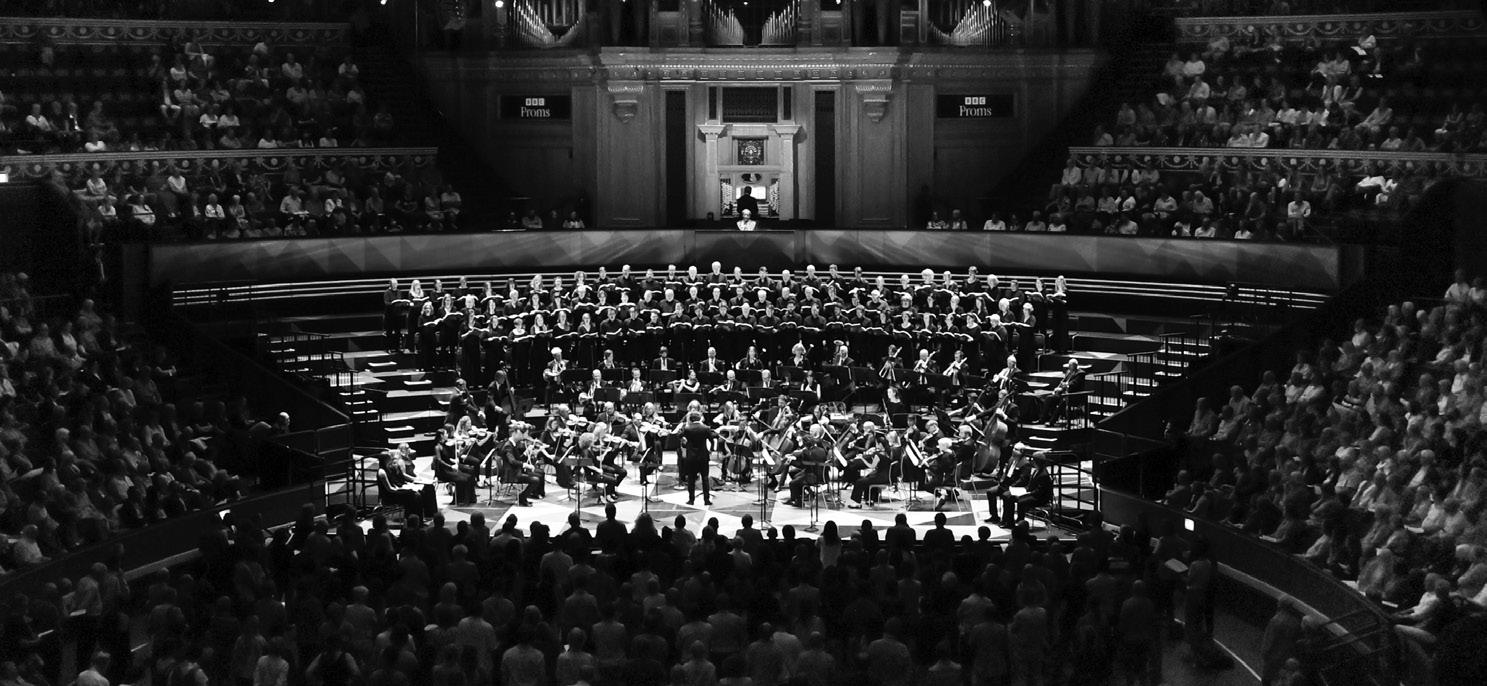
Scottish Chamber Orchestra and Chorus
4 Royal Terrace, Edinburgh EH7 5AB
+44 (0)131 557 6800 | info@sco.org.uk | sco.org.uk
The Scottish Chamber Orchestra is a charity registered in Scotland No. SC015039. Company registration No. SC075079.
THANK YOU
Our Principal Conductor’s Circle are a special part of our musical family. Their commitment and generosity benefit us all – musicians, audiences and creative learning participants alike.
Annual Fund
James and Patricia Cook
Visiting Artists Fund
Colin and Sue Buchan
Harry and Carol Nimmo
Anne and Matthew Richards
International Touring Fund
Gavin and Kate Gemmell
Creative Learning Fund
Sabine and Brian Thomson
CHAIR SPONSORS
Conductor Emeritus Joseph Swensen
Donald and Louise MacDonald
Chorus Director Gregory Batsleer
Anne McFarlane
Principal Second Violin
Marcus Barcham Stevens
Jo and Alison Elliot
Second Violin Rachel Smith
J Douglas Home
Principal Viola Max Mandel
Ken Barker and Martha Vail Barker
Viola Brian Schiele
Christine Lessels
Viola Steve King
Sir Ewan and Lady Brown
Principal Cello Philip Higham
The Thomas Family
American Development Fund
Erik Lars Hansen and Vanessa C L Chang
Productions Fund
Bill and Celia Carman
Anny and Bobby White
Anne, Tom and Natalie Usher
Scottish Touring Fund
Eriadne and George Mackintosh
Claire and Anthony Tait
Cello Donald Gillan
Professor Sue Lightman
Cello Eric de Wit
Jasmine Macquaker Charitable Fund
Principal Double Bass Nikita Naumov
Caroline Hahn and Richard Neville-Towle
Principal Flute André Cebrián
Claire and Mark Urquhart
Principal Oboe Robin Williams
In memory of Hedley G Wright
Principal Clarinet Maximiliano Martín
Stuart and Alison Paul
Principal Bassoon Cerys Ambrose-Evans
Claire and Anthony Tait
Principal Timpani Louise Lewis Goodwin
Geoff and Mary Ball




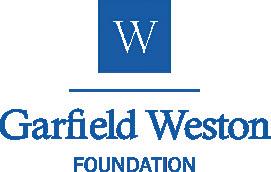

Diamond
Malcolm and Avril Gourlay
John and Jane Griffiths
James and Felicity Ivory
Robin and Catherine Parbrook
Clair and Vincent Ryan
William Samuel
Tom and Natalie Usher
Platinum
David Caldwell in memory of Ann
Silvia and Andew Brown
Judith and David Halkerston
Audrey Hopkins
David and Elizabeth Hudson
Dr and Mrs Peter Jackson
Dr Daniel Lamont
Chris and Gill Masters
Duncan and Una McGhie
Anne-Marie McQueen
James F Muirhead
Patrick and Susan Prenter
Mr and Mrs J Reid
George Ritchie
Martin and Mairi Ritchie
Hilary E Ross
Elaine Ross
George Rubienski
Jill and Brian Sandford
Michael and Elizabeth Sudlow
Robert and Elizabeth Turcan
Alan and Sue Warner
Finlay and Lynn Williamson
Dr Peter Williamson and Ms Margaret Duffy
Ruth Woodburn
William Zachs
Gold
John and Maggie Bolton
Elizabeth Brittin
Kate Calder
Lord Matthew Clarke
Jo and Christine Danbolt
James and Caroline Denison-Pender
Andrew and Kirsty Desson
David and Sheila Ferrier
Chris and Claire Fletcher
Dr J W E Forrester
James Friend
Adam Gaines and Joanna Baker
Margaret Green
Iain Gow
Christopher and Kathleen Haddow
Catherine Johnstone
Gordon Kirk
Robert Mackay and Philip Whitley
Mike and Karen Mair
Anne McAlister and Philip Sawyer
Roy and Svend McEwan-Brown
John and Liz Murphy
Maggie Peatfield
Charles Platt
Alison and Stephen Rawles
Andrew Robinson
Olivia Robinson
Irene Smith
Ian S Swanson
John-Paul and Joanna Temperley
James Wastle and Glenn Craig
Bill Welsh
Catherine Wilson
Neil and Philippa Woodcock
G M Wright
Bruce and Lynda Wyer
Silver
Roy Alexander
Pamela Andrews and Alan Norton
Dr Peter Armit
William Armstrong
Fiona and Neil Ballantyne
Timothy Barnes and Janet Sidaway
The Batsleer Family
Jack Bogle
Jane Borland
Alan Borthwick
Michael and Jane Boyle
Mary Brady
John Brownlie
Laura Buist
Robert Burns
Sheila Colvin
Lorn and Camilla Cowie
Philip Croft and David Lipetz
Lord and Lady Cullen of Whitekirk
Adam and Lesley Cumming
Dr Wilma Dickson
Sylvia Dow
Dr and Mrs Alan Falconer
Sheila Ferguson
Malcolm Fleming
Dr William Irvine Fortescue
Dr David Grant
Andrew Hadden
J Martin Haldane
Ronnie and Ann Hanna
Ruth Hannah
Robin Harding
Roderick Hart
Norman Hazelton
Ron and Evelynne Hill
Philip Holman
Clephane Hume
Tim and Anna Ingold
David and Pamela Jenkins
Susannah Johnston and Jamie Weir
Julie and Julian Keanie
Marty Kehoe
Professor Christopher and Mrs Alison Kelnar
Dr and Mrs Ian Laing
Janey and Barrie Lambie
Graham and Elma Leisk
Geoff Lewis
Dorothy A Lunt
Vincent Macaulay
James McClure in memory of Robert Duncan
Gavin McCrone
Brian Miller
James and Helen Moir
Alistair Montgomerie
Margaret Mortimer and Ken Jobling
Andrew Murchison
Hugh and Gillian Nimmo
David and Tanya Parker
Hilary and Bruce Patrick
John Peutherer in memory of Audrey Peutherer
James S Potter
Alastair Reid
Fiona Reith
Catherine Steel
Ian Szymanski
Takashi and Mikako Taji
Douglas and Sandra Tweddle
C S Weir
We are indebted to everyone acknowledged here who gives philanthropic gifts to the SCO of £300 or greater each year, as well as those who prefer to remain anonymous.
We are also incredibly thankful to the many individuals not listed who are kind enough to support the Orchestra financially on a regular or ad hoc basis. Every single donation makes a difference.
Become a regular donor, from as little as £5 a month, by contacting Hannah Wilkinson on 0131 478 8364 or hannah.wilkinson@sco.org.uk.
“A crack musical team at the top of its game.”
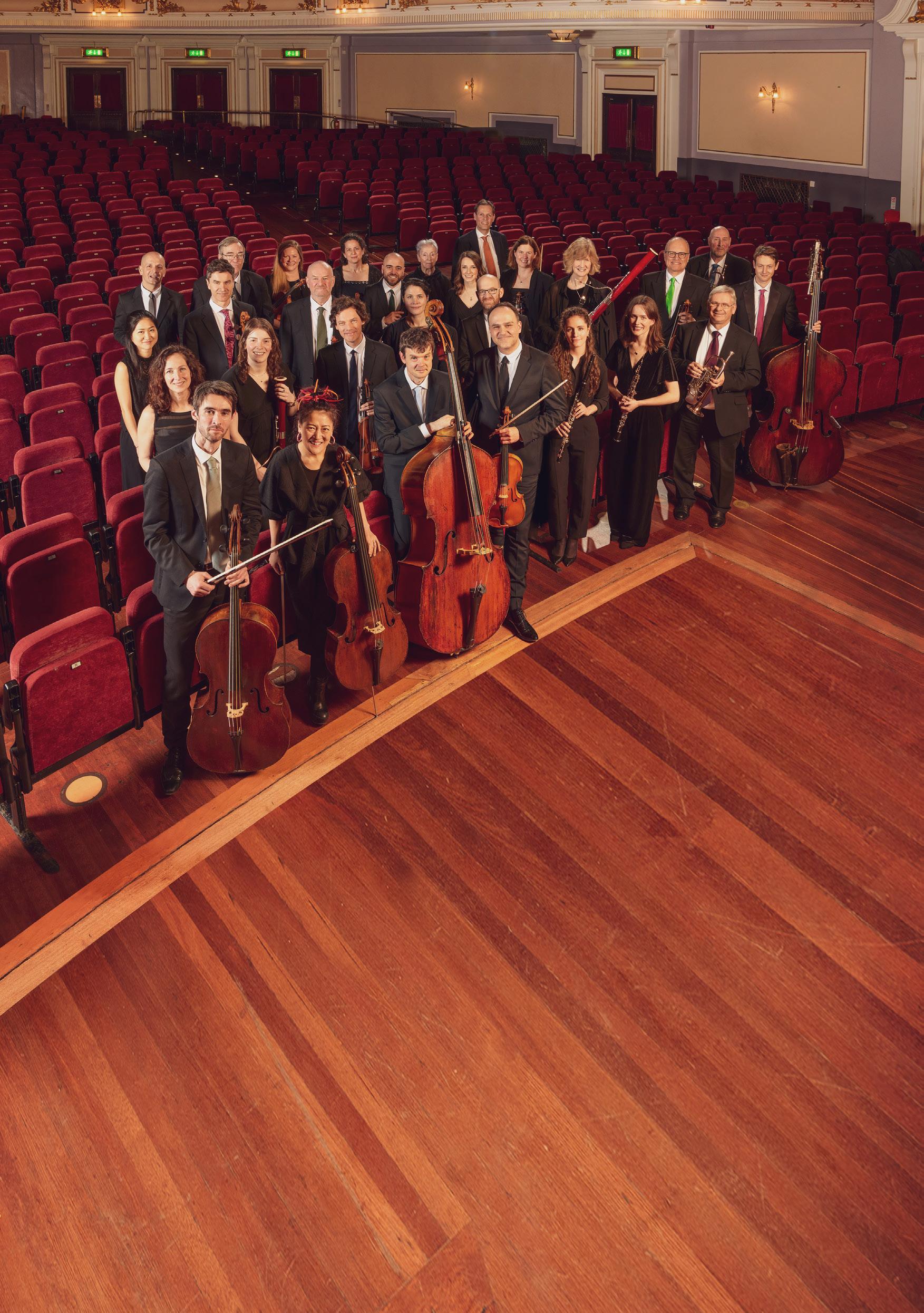
HRH The Former Duke of Rothesay
Patron
Donald MacDonald CBE
Life President
Joanna Baker CBE
Chair
Gavin Reid LVO
Chief Executive
Maxim Emelyanychev
Principal Conductor
Andrew Manze
Principal Guest Conductor
Joseph Swensen
Conductor Emeritus
Gregory Batsleer
Chorus Director
Jay Capperauld
Associate Composer
Our Musicians
Information correct at the time of going to print
First Violin
Pablo Hernan
Afonso Fesch
Elizabeth Wexler
Kana Kawashima
Siún Milne
Fiona Alexander
Amira Bedrush-McDonald
Esther Kim
Tom Hankey
Second Violin
Marcus Barcham Stevens
Gordon Bragg
Michelle Dierx
Rachel Smith
Niamh Lyons
Sarah Bevan Baker
Gongbo Jiang
Catherine James
Kristin Deeken
Viola
Max Mandel
Zoë Matthews
Steve King
Rebecca Wexler
Kathryn Jourdan
Marsailidh Groat
Cello
Philip Higham
Su-a Lee
Donald Gillan
Eric de Wit
Kim Vaughan
Christoff Fourie
Bass
Jamie Kenny
Richard Lewis
Felix Lashmar
Adrian Bornet
Flute
André Cebrián
Marta Gómez
Oboe
Robin Williams
Katherine Bryer
Clarinet
Kate McDermott
William Stafford
Bassoon
Cerys Ambrose-Evans
Alison Green
Horn
Máté Börszönyi
Josu Alcalde Polo
Rachel Brady
Harry Johnstone
Trumpet
Peter Franks
Shaun Harrold
Trombone
Duncan Wilson
Nigel Cox
Alan Adams
Ophicleide
Tony George
Timpani
Louise Lewis Goodwin
Organ
Michael Bawtree

Rachel Smith
Second Violin
MENDELSSOHN (1809-1847)
Elijah, Op 70 (1846, rev. 1847)
Part I
Part II
Felix Mendelssohn had a complex, nuanced relationship with religion. He was born into a family of Jewish heritage – his grandfather was the celebrated German-Jewish philosopher and theologian Moses Mendelssohn, whose writings on Judaism and Jewish identity were central to the Jewish Enlightenment of the late 18th and 19th centuries. But little Felix’s father Abraham – an influential Berlin banker – raised his children largely without religion, and the boy was baptised a Protestant at the age of seven. He would remain a practising Christian throughout his lifetime, but remained proud, too, of his Jewish roots (a background that would later provoke antisemitic attacks from Richard Wagner, and lead to the Nazi regime banning his music).
But in the story of Old Testament prophet Elijah, Mendelssohn may well have felt he’d found a figure to combine both faiths, or – better still – to transcend them. The composer was well established in 1836, when he first began contemplating a large-scale work based on Elijah’s story, and fresh from the success of his oratorio St Paul. He was in demand across Europe as a conductor and pianist; he’d effectively relaunched a love for the music of JS Bach with his 1829 performance of the St Matthew Passion; and he’d been appointed Music Director of the Gewandhaus Orchestra in Leipzig (the city where he’d go on to found a music conservatory in 1843).
Though Mendelssohn was fascinated by the Elijah story, he couldn’t however, find a suitable writer to tell it. He asked his friend Karl Klingemann – who’d written the libretto for St Paul (and who, incidentally, had accompanied Mendelssohn on his three-week jaunt to Scotland in 1829) – but, despite some initial enthusiasm, the project petered out. He asked another friend – Pastor Julius Schubring – but the two men disagreed over the proposed
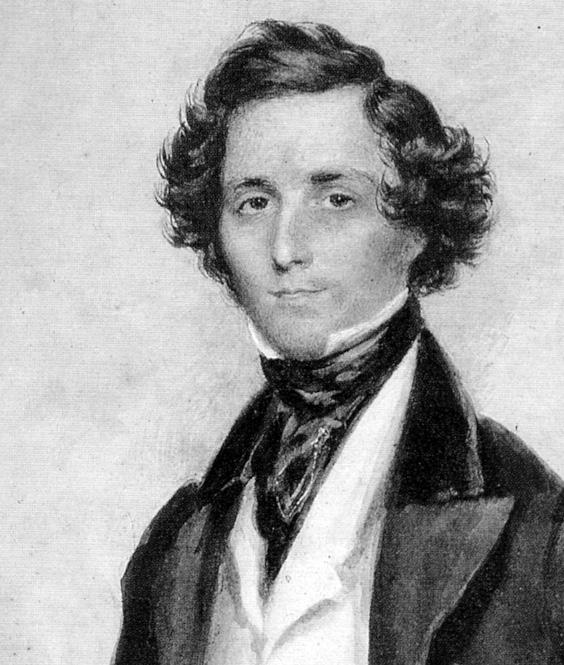
oratorio’s tone. Mendelssohn was hoping for gripping drama, whereas Schubring had something more akin to a church sermon in mind. Again, they abandoned the idea.
But beginning with that tour of Scotland as a 20-year-old – which also included a few stopoffs in England – Mendelssohn had developed a very warm relationship with Britain, and British listeners, too, liked and admired the man and his music. (It was a closeness that extended, in fact, to Queen Victoria and Prince Albert, who held the young man in particularly high regard.) Mendelssohn performed to enormous acclaim at the Birmingham Triennial Festival in 1837 – conducting St Paul as well as appearing as soloist in his own Piano Concerto No 2. When a request for a new oratorio arrived from Birmingham in 1845, it was just what Mendelssohn needed to spur his Elijah project into action. ‘Since some time I have begun an oratorio,’ he wrote back, ‘and hope I shall be able to bring it out for the first time
In the end, he did finish Elijah in time – well, just. He put his finishing touches to the score two weeks before its scheduled premiere on 27 August 1846, in Birmingham Town Hall. And the piece went down a storm.
at your Festival; but it is still a mere beginning and I cannot yet give you any promise as to my finishing it in time.’
In the end, he did finish Elijah in time – well, just. He put his finishing touches to the score two weeks before its scheduled premiere on 27 August 1846, in Birmingham Town Hall. And the piece went down a storm. No fewer than eight numbers were encored, and the flow of music was regularly interrupted by applause. Mendelssohn wrote excitedly home to his brother: ‘no work of mine went so admirably the first time of execution, or was received with such enthusiasm by both the musicians and the audience.’ Critics loved it: The Times gushed, ‘never was there a more complete triumph; never a more thorough and speedy recognition of a great work of art.’ Apart from George Bernard Shaw, that is, who detested the piece. ‘You have only to think of the inspired moments of Bach and Handel,’ he wrote, ‘to see the great gulf that lies between the true religious
Felix Mendelssohn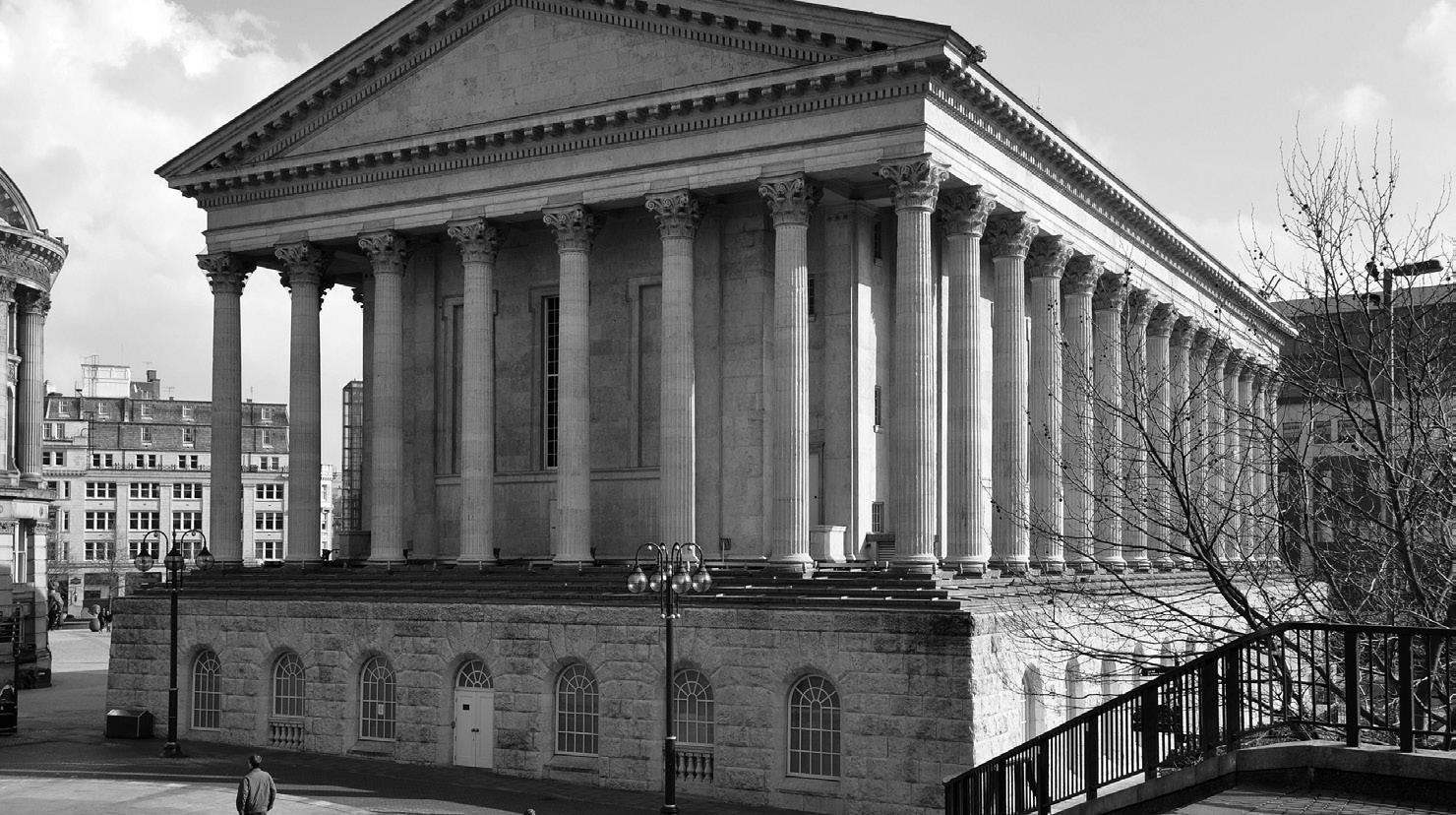
sentiment and our delight in Mendelssohn’s exquisite prettiness.’
Despite Shaw’s carping, Elijah’s star rose ever higher in Britain, where it quickly took second place only to Handel’s Messiah in terms of popularity, a position it maintained throughout the 19th century. Like that great earlier oratorio, Elijah found fertile ground among Britain’s wealth of amateur choral societies eager for rich music to charm and captivate them. It also found fertile ground, arguably, in a largely Protestant society that felt its foundations being chipped away by scientific endeavour, and by the lure of Catholic exoticism. In Elijah, singers and listeners alike found a dramatic, celebratory piece that was solidly, reassuringly Protestant.
Drama, as we’ve seen, was central to Mendelssohn’s conception of Elijah from his earliest thinking. So much so, in fact, that it’s even been called the opera that he never wrote. There’s some justification for that, in terms of
Mendelssohn’s tremendously vivid musical depictions (most famously of God’s tempest, earthquake and fire in Part II) and his deeply expressive vocal writing. It’s probably closer to the truth, however, to say that Elijah reflects the history of its own musical form – the oratorio. If oratorios began as what were effectively unstaged operas shipped into churches during Lent (when operatic excess was forbidden), then Elijah, too, straddles both of those worlds –although in tonight’s case, it’s more of a question of bringing a sense of churchly contemplation into the concert hall. You could even argue that Part I is Elijah’s ‘operatic’ half, with a stronger focus on drama and storytelling, while Part II, with its slower sense of spiritual contemplation, feels closer to a church work.
On the question of drama, Mendelssohn launches Part I in a manner that would no doubt have shocked 19th-century listeners. Before the Overture can even get going, we hear from an impassioned Elijah himself, who relays

God’s curse to the Israelites: where once they worshipped him, they now worship false idols, and for that, they shall endure three years of drought. Mendelssohn’s Overture may represent the passing of time during those three dry years of famine. The Israelites beg for forgiveness, but they are ignored, and Elijah’s supporter Obadiah reminds them that they should turn back to the true God with their hearts and minds, not simply demand mercy. God then sends Elijah to the house of a widow, whose food miraculously multiplies. When her son dies, Elijah restores him to life.
The action then shifts to Elijah on Mount Carmel, in a contest of divine power against the priests of the false god Baal. He mocks them when they’re unable to elicit an answer from their deity, even after three attempts. Elijah’s single prayer to the true God, however, is answered by a column of fire from heaven. He orders the slaying of the priests of Baal, and Part I ends with jubilation at the return of rain.
Drama, as we’ve seen, was central to Mendelssohn’s conception of Elijah from his earliest thinking. So much so, in fact, that it’s even been called the opera that he never wrote.
If Elijah closes Part I in glory, he’s a very different man in Part II: isolated, wavering in his faith, contemplating the futility of all he has done. Furious at the slaying of the priests of Baal, Jezebel (wife of the corrupt King Ahab), orders vengeance with the killing of Elijah. Aided by Obadiah, Elijah flees to the wilderness, where he undergoes his own crisis of belief. In his profoundly moving aria ‘It is enough’ – the oratorio’s focal point, and a moment that clearly references Christ’s own ‘Es ist vollbracht’ from Bach’s St John Passion – Elijah begs God to end his life.
While Elijah sleeps, however, angels watch over him, and warn him to prepare himself for God’s arrival. The whole world seems to shake: following a ferocious storm, earthquake and fire, the deity arrives as a ‘still, small voice’, and Elijah ultimately ascends to Heaven in a chariot of fire.
© David Kettle Elijah, as depicted in Andrea di Bonaiuto’s Madonna and Child with Saints (14th century)MENDELSSOHN (1809-1847)
Elijah, Op 70 (1846, rev. 1847)
(Elijah)
As God the Lord of Israel liveth, before whom I stand; there shall not be dew nor rain these years, but according to my word.
1 The People (Chorus)
Help, Lord! Wilt thou quite destroy us? The harvest now is over, the summer days are gone, and yet no power cometh to help us! Will then the Lord be no more God in Zion? The deeps afford no water; and the rivers are exhausted! The suckling’s tongue now cleaveth for thirst to his mouth: the infant children ask for bread, and there is no-one breaketh it to feed them!
2 Sopranos and the People (Duet and Chorus)
Lord, bow thine ear to our prayer! Zion spreadeth her hands for aid; and there is neither help nor comfort.
3 Obadiah (Recitative)
Ye people, rend your hearts, and not your garments, for your transgressions, even as Elijah hath sealed the heavens through the word of God, I therefore say to ye: forsake your idols, return to God: for he is slow to anger, and merciful, and kind, and gracious, and repenteth him of the evil.
4 Obadiah (Aria)
‘If with all your hearts ye truly seek me, ye shall ever surely find me.’ Thus saith our God. Oh! That I knew where I might find him, that I might even come before his presence!
5 The People (Chorus)
Yet doth the Lord see it not: he mocketh at us; his curse hath fallen down upon us; his wrath will pursue us till he destroy us! For he, the Lord our God, he is a jealous God; and he visiteth all the fathers’ sins on the children to the third and the fourth generation of them that hate him. His mercies on thousands fall, fall on all them that love him, and keep his commandments.
6 An Angel (Recitative)
Elijah! Get thee hence, Elijah! Depart, and turn thee eastward: thither hide thee by Cherith’s brook. There shalt thou drink its waters; and the Lord thy God hath commanded the ravens to feed thee there: so do according unto his word.
7 Angels (Semi-chorus)
For he shall give his angels charge over thee; that they shall protect thee in all the ways thou goest; that their hands shall uphold and guide thee, lest thou dash thy foot against a stone.
An Angel (Recitative)
Now Cherith’s brook is dried up, Elijah, arise and depart, and get thee to Zarephath; thither abide: for the Lord hath commanded a widow woman there to sustain thee. And the barrel of meal shall not waste, neither shall the cruse of oil fail, until the day that the Lord sendeth rain upon the earth.
8 Recitative
(The Widow)
What have I to do with thee, O man of God? Art thou come to me to call my sin unto remembrance? To slay my son art thou come hither? Help me, man of God! My son is sick! And his sickness is so sore that there is no breath left in him! I go mourning all the day long; I lie down and weep at night. See mine affliction. Be thou the orphan’s helper! Help my son! There is no breath left in him!
(Elijah)
Give me thy son. Turn unto her, O Lord, my God; O turn in mercy, in mercy help this widow’s son! For thou art gracious, and full of compassion, and plenteous in mercy. Lord, my God, let the spirit of this child return, that he again may live!
(The Widow)
Wilt thou show wonders to the dead? There is no breath in him!
(Elijah)
Lord, my God, let the spirit of this child return, that he again may live!
(The Widow)
Shall the dead arise and praise thee?
(Elijah)
Lord, my God, O let the spirit of this child return, that he again may live!
(The Widow)
The Lord hath heard thy prayer, the soul of my son reviveth!
(Elijah)
Now behold, thy son liveth!
(The Widow)
Now by this I know that thou art a man of God, and that his word in thy mouth is the truth. What shall I render to the Lord for all his benefits to me?
(Elijah)
Thou shalt love the Lord thy God with all thine heart, and with all thy soul, and with all thy might. The Widow … with all my soul, and with all my might.
(Both)
O blessed are they who fear him!
9 The People (Chorus)
Blessed are the men who fear him: they ever walk in the ways of peace. Through darkness riseth light to the upright. He is gracious, compassionate: he is righteous.
10 Recitative and Chorus
(Elijah)
As God the Lord of Sabaoth liveth, before whom I stand, three years this day fulfilled, I will shew myself unto Ahab; and the Lord will then send rain again upon the earth.
(Ahab)
Art thou Elijah? Art thou, art thou he that troubleth Israel?
(The People)
Thou art Elijah, thou, he that troubleth Israel!
(Elijah)
I never troubled Israel’s peace: it is thou, Ahab, and all thy father’s house. Ye have forsaken God’s commands; and thou hast followed Baal. Now send and gather to me the whole of Israel unto Mount Carmel. There summon the prophets of Baal, and also the prophets of the groves, who are feasted at Jezebel’s table. Then we shall see whose God is the Lord.
(The People)
And then we shall see whose God is our Lord.
(Elijah)
Rise then, ye priests of Baal: select and slay a bullock, and put no fire under it: uplift your voices and call the God ye worship; and I then will call on the Lord Jehovah: and the God who by fire shall answer, let him be God.
(The People)
Yea; and the God who by fire shall answer, let him be God.
(Elijah)
Call first upon your God: your numbers are many; I, even I, remain one prophet of the Lord! Invoke your forest gods, and mountain deities.
11 Priests of Baal (Chorus)
Baal, we cry to thee; hear and answer us! Heed the sacrifice we offer! Baal, O hear us, and answer us! Hear us, Baal! Hear, mighty god! Baal, O answer us! Baal, let thy flames fall and extirpate the foe! Baal, O hear us!
12 Recitative and Chorus (Elijah)
Call him louder, for he is a god! He talketh; or he is pursuing; or he is in a journey; or, peradventure, he sleepeth: so awaken him: call him louder! Priests of Baal Hear our cry, O Baal! Now arise! Wherefore slumber?
13 Recitative and Chorus (Elijah)
Call him louder! He heareth not. With knives and lancets cut yourselves after your manner. Leap upon the altar ye have made: call him, and prophesy! Not a voice will answer you; none will listen, none heed you.
(Priests of Baal)
Baal, hear and answer, Baal! Mark, how the scorner derideth us! Hear and answer!
(Elijah)
Draw near, all ye people: come to me!
14 Elijah (Aria)
Lord God of Abraham, Isaac, and Israel! This day let it be known that thou art God; and that I am thy servant! O show to all this people that I have done these things according to Thy word! O hear me, Lord, and answer me; and shew this people that thou art Lord God; and let their hearts again be turned!
15 Quartet (with Soprano 1)
Cast thy burden upon the Lord, and he shall sustain thee. He never will suffer the righteous to fall: he is at thy right hand. Thy mercy, Lord, is great; and far above the heav’ns. Let none be made ashamed that wait upon thee.
16 Recitative and Chorus (Elijah)
O thou, who makest thine angels spirits; thou, whose ministers are flaming fires, let them now descend!
(The People)
The fire descends from heav’n. The flames consume his offering! Before him upon your faces fall! The Lord is God! O Israel, hear! Our God is one Lord! And we will have no other gods before the Lord!
(Elijah)
Take all the prophets of Baal; and let not one of them escape you: bring them down to Kishon’s brook, and there let them be slain.
(The People)
Take all the prophets of Baal; and let not one of them escape us; bring all, and slay them!
17 Elijah (Aria)
Is not his word like a fire: and like a hammer that breaketh the rock into pieces? For God is angry with the wicked ev’ry day: and if the wicked turn not, the Lord will whet his sword; and he hath bent his bow, and made it ready.
18 Mezzo-soprano (Arioso)
Woe unto them who forsake him! Destruction shall fall upon them, for they have transgressed against him. Though they are by him redeemed, yet they have spoken falsely against him. From him have they fled. Woe unto them!
19 Recitative and Chorus (Obadiah)
O man of God, help thy people! Among the idols of the Gentiles, are there any that can command the rain, or cause the heav’ns to give their showers? The Lord our God alone can do these things.
(Elijah)
O Lord, thou hast overthrown thine enemies and destroyed them. Look down on us from heaven, O Lord; regard the distress of thy people: open the heavens and send us relief: help, help thy servant now, O God!
(The People)
Open the heavens and send us relief: help, help thy servant now, O God!
(Elijah)
Go up now, child, and look toward the sea. Hath my prayer been heard by the Lord?
The Youth
There is nothing. The heav’ns are as brass, they are as brass above me.
(Elijah)
When the heavens are closed up because they have sinned against thee, yet if they pray and confess thy name, and turn from their sin when thou dost afflict them: then hear from heav’n, and forgive the sin! Help! Send thy servant help, O God!
(The People)
Then hear from heav’n, and forgive the sin! Help! Send thy servant help, O God!
(Elijah)
Go up again, and still look toward the sea.
(The Youth)
There is nothing. The earth is as iron under me!
(Elijah)
Hearest thou no sound of rain? Seest thou nothing arise from the deep?
(The Youth)
No, there is nothing.
(Elijah)
Have respect to the pray’r of thy servant, O Lord, my God! Unto thee will I cry, Lord, my rock. Be not silent to me; and Thy great mercies remember, Lord!
(The Youth)
Behold, a little cloud ariseth now from the waters; it is like a man’s hand! The heavens are black with cloud and with wind: the storm rusheth louder and louder!
(The People)
Thanks be to God for all his mercies!
(Elijah)
Thanks be to God, for he is gracious, and his mercy endureth for evermore!
20 The People (Chorus)
Thanks be to God! He laveth the thirsty land! The waters gather, they rush along; they are lifting their voices! The stormy billows are high, their fury is mighty. But the Lord is above them, and Almighty!
21 Soprano 1 (Aria)
Hear ye, Israel; hear what the Lord speaketh: ‘Oh, hadst thou heeded my commandments!’ Who hath believed our report; to whom is the arm of the Lord revealed? Thus saith the Lord, the Redeemer of Israel, and his Holy One, to him oppressed by tyrants: thus saith the Lord: ‘I am he that comforteth: be not afraid, for I am thy God, I will strengthen thee. Say, who art thou, that thou art afraid of a man that shall die; and forgettest the Lord thy maker, who hath stretched forth the heavens, and laid the earth’s foundations? Be not afraid, for I, thy God, will strengthen thee!’
22 Chorus
Be not afraid, saith God the Lord. Be not afraid! Thy help is near. God, the Lord thy God, sayeth unto thee, ‘Be not afraid!’ Though thousands languish and fall beside thee, and tens of thousands around thee perish, yet still it shall not come nigh thee.
23 Recitative and Chorus (Elijah)
The Lord hath exalted thee from among the people: and o’er his people Israel hath made thee king. But thou, Ahab, hast done evil to provoke him to anger above all that were before thee: as if it had been a light thing for thee to walk in the sins of Jeroboam. Thou hast made a grove and an altar to Baal, and serv’d him and worshipp’d him. Thou hast killed the righteous, and also taken possession. And the Lord shall smite all Israel, as a reed is shaken in the water; and he shall give Israel up, and thou shalt know he is the Lord.
(The Queen)
Have ye not heard he hath prophesied against all Israel?
(The People)
We heard it with our ears.
(The Queen)
Hath he not prophesied also against the king of Israel?
(The People)
We heard it with our ears.
(The Queen)
And why hath he spoken in the name of the Lord? Doth Ahab govern the kingdom of Israel while Elijah’s power is greater than the king’s? The gods do so to me, and more, if, by tomorrow about this time, I make not his life as the life of one of them whom he hath sacrific’d at the brook of Kishon!
(The People)
He shall perish!
(The Queen)
Hath he not destroyed Baal’s prophets?
(The People)
He shall perish!
(The Queen)
Yea, by sword he destroyed them all!
(The People)
He destroyed them all!
(The Queen)
He also closed the heavens!
(The People)
He also closed the heavens!
(The Queen)
And called down a famine upon the land.
(The People)
And called down a famine upon the land.
(The Queen)
So go ye forth and seize Elijah, for he is worthy to die. Slaughter him! Do unto him as he hath done!
24 The People (Chorus)
Woe to him, he shall perish; for he closed the heavens! And why hath he spoken in the name of the Lord? Let the guilty prophet perish! He hath spoken falsely against our land and us, as we have heard with our ears. So go ye forth; seize on him! He shall die!
25 Recitative (Obadiah)
Man of God, now let my words be precious in thy sight. Thus saith Jezebel: ‘Elijah is worthy to die.’ So the mighty gather against thee, and they have prepared a net for thy steps; that they may seize thee, that they may slay thee. Arise, then, and hasten for thy life; to the wilderness journey. The Lord thy God doth go with thee: he will not fail thee, he will not forsake thee. Now begone, and bless me also.
(Elijah)
Though stricken, they have not grieved! Tarry here, my servant: the Lord be with thee. I journey hence to the wilderness.
26 Elijah (Recitative)
It is enough; O Lord, now take away my life, for I am not better than my fathers! I desire to live no longer: now let me die, for my days are but vanity! I have been very jealous for the Lord God of Hosts! For the children of Israel have broken thy covenant, and thrown down thine altars, and slain all thy prophets, slain them with the sword: and I, even I, only am left; and they seek my life to take it away.
27 Tenor (Recitative)
See, now he sleepeth beneath a juniper tree in the wilderness: and there the angels of the Lord encampeth round about all them that fear him.
28 The Angels (Trio with Soprano 2)
Lift thine eyes to the mountains, whence cometh help.Thy help cometh from the Lord, the maker of heaven and earth. He hath said, thy foot shall not be moved. Thy keeper will never slumber.
29 Chorus
He, watching over Israel, slumbers not, nor sleeps. Shouldst thou, walking in grief, languish, he will quicken thee.
30 Recitative (The Angel)
Arise, Elijah, for thou hast a long journey before thee. Forty days and forty nights shalt thou go to Horeb, the mount of God.
(Elijah)
O Lord, I have labour’d in vain; yea, I have spent my strength for naught, and in vain!
O that thou wouldst rend the heavens, that thou wouldst come down; that the mountains would flow down at thy presence, to make thy name known to thine adversaries, through the wonders of thy works! O Lord, why hast thou made them to err from thy ways, and hardened their hearts that they do not fear thee? O that I now might die!
31 The Angel (Aria)
O rest in the Lord; wait patiently for him, and he shall give thee thy heart’s desires. Commit thy way unto him, and trust in him, and fret not thyself because of evil-doers.
32 Chorus
He that shall endure to the end, shall be saved.
33 Recitative (Elijah)
Night falleth round me, O Lord! Be thou not far from me! Hide not thy face, O Lord, from me; my soul is thirsting for thee, as a thirsty land.
(The Angel)
Arise, now! Get thee without, stand on the mount before the Lord; for there his glory will appear and shine on thee! Thy face must be veiled, for he draweth near.
34 Chorus
Behold! God the Lord passed by! And a mighty wind rent the mountains around, brake in pieces the rocks, brake them before the Lord: but yet the Lord was not in the tempest.
Behold! God the Lord passed by! And the sea was upheaved, and the earth was shaken: but yet the Lord was not in the earthquake.
And after the earthquake there came a fire: but yet the Lord was not in the fire.
And after the fire there came a still small voice; and in that still voice onward came the Lord.
35 Recitative and Chorus (Mezzo-soprano)
Above him stood the Seraphim, and one cried to another:
Seraphim (Quartet and Chorus)
Holy, holy, holy is God the Lord, the Lord Sabaoth! Now his glory hath filled all the earth.
36 Chorus
Go, return upon thy way! For the Lord yet hath left him seven thousand in Israel, knees which have not bow’d to Baal: go, return upon thy way. Thus the Lord commandeth.
Elijah (Recitative)
I go on my way in the strength of the Lord. For thou art my Lord; and I will suffer for thy sake. My heart is therefore glad, my glory rejoiceth, and my flesh shall also rest in hope!
37 Elijah (Arioso)
For the mountains shall depart, and the hills be removed; but thy kindness shall not depart from me, neither shall the covenant of thy peace be removed.
38 Chorus
Then did Elijah the prophet break forth like a fire; his words appeared like burning torches. Mighty kings by him were overthrown. He stood on the mount of Sinai, and heard the judgements of the future; and in Horeb, its vengeance. And when the Lord would take him away to heaven, lo! there came a fiery chariot, with fiery, fiery horses; and he went by a whirlwind to heaven.
39 Tenor (Aria)
Then shall the righteous shine forth as the sun in their heav’nly Father’s realm. Joy on their head shall be for ever lasting, and all sorrow and mourning shall flee away for ever.
40 Soprano 1 (Recitative)
Behold, God hath sent Elijah the prophet, before the coming of the great and dreadful day of the Lord. And he shall turn the heart of the fathers to the children, and the heart of the children unto their fathers; lest the Lord shall come and smite the earth with a curse.
41 Chorus
But the Lord from the north hath raised one, who from the rising of the sun, shall call upon his name, and come on princes. Behold, my servant and mine elect, in whom my soul delighteth! On him the Spirit of God shall rest: the spirit of wisdom and understanding, the spirit of might and of counsel, the spirit of knowledge and of the fear of the Lord. Thus saith the Lord: ‘I have raised one from the north, who from the rising, on my name shall call.’
41a Quartet (with Soprano 1)
O come ev’ry one that thirsteth, O come to the waters: O come unto him! O hear, and your souls shall live for ever!
41b Chorus
And then shall your light shine forth as the light of the morning breaketh; and your health shall speedily spring forth then. And the glory of the Lord ever shall reward you. Lord, our Creator, how excellent thy name is in all the nations! Thou fillest heaven with thy glory. Amen!
Text by Julius Schubring (1806–89) and the composer, based on I Kings 17–19, translated into English by William Bartholomew (1793–1867.)
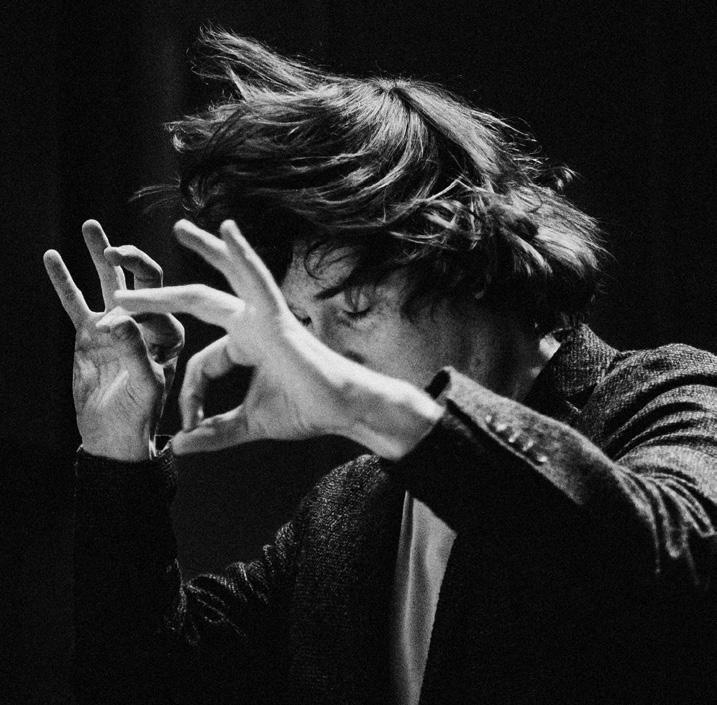
At the Scottish Chamber Orchestra Maxim Emelyanychev follows in the footsteps of just five previous Principal Conductors in the Orchestra’s 49-year history; Roderick Brydon (1974-1983), Jukka-Pekka Saraste (1987-1991), Ivor Bolton (1994-1996), Joseph Swensen (1996-2005) and Robin Ticciati (2009-2018).
Recent highlights have included a US tour and a performance at the London Proms with the Scottish Chamber Orchestra and his debuts with the Berliner Philharmoniker, New Japan Philharmonic, Osaka Kansai Philharmonic, Bergen Philharmonic, Finnish Radio Symphony Orchestra, Orchestre de Chambre de Paris.
In 2023/24 Maxim’s highlights include the following debuts: Symphonieorchester des Bayerischen Rundfunks, WDR Sinfonieorchester Köln, SWR Symphonieorchester Stuttgart, Deutsche Kammerphilharmonie Bremen, Toronto Symphony Orchestra, City of Birmingham Symphony Orchestra, Orchestre Philharmonique de Radio-France, Mozarteum Orchestra at the Salzburg Festival. He returns to the Deutsches Symphonie-Orchester Berlin, Royal Concertgebouw Orchestra, Rotterdam Philharmonic, Mahler Chamber Orchestra, Netherlands Philharmonic Orchestra, Orchestra of the Age of Enlightenment and the Swedish Radio Symphony Orchestra.
He regularly collaborates with renowned artists such as Max Emanuel Cenčić, Patrizia Ciofi, Joyce DiDonato, Franco Fagioli, Richard Goode, Sophie Karthäuser, Stephen Hough, Katia and Marielle Labèque, Marie-Nicole Lemieux, Julia Lezhneva, Alexei Lubimov, Riccardo Minasi, Xavier Sabata and Dmitry Sinkovsky.
Maxim is also a highly respected chamber musician. His most recent recording (on Aparté), of Brahms Violin Sonatas with long-time collaborator and friend Aylen Pritchen has attracted outstanding reviews internationally. With the Scottish Chamber Orchestra, Maxim has made critically-acclaimed recordings of Schubert Symphony No 9 – the symphony with which he made his debut with the orchestra – and Mendelssohn Symphonies Nos 3 'Scottish' and 5 'Reformation' both on Linn Records.
For full biography please visit sco.org.uk

Equally at home on the concert and opera stages, Carolyn Sampson has enjoyed notable successes in the UK as well as throughout Europe and the US.
On the opera stage her roles have included the title role in Semele and Pamina in The Magic Flute for English National Opera, various roles in Purcell’s The Fairy Queen for Glyndebourne Festival Opera (released on DVD) and both Anne Truelove The Rake’s Progress and Mélisande Pelléas et Mélisande in Sir David McVicar’s productions for Scottish Opera. Internationally she has appeared at Opéra de Paris, Opéra de Lille, Opéra de Montpellier and Opéra National du Rhin. She also sang the title role in Lully’s Psyché for the Boston Early Music Festival, which was released on CD and was subsequently nominated for a Grammy.
Carolyn’s numerous concert engagements in the UK have included regular appearances at the BBC Proms, and with orchestras including Britten Sinfonia, City of Birmingham Symphony Orchestra, English Concert, Hallé, Orchestra of the Age of Enlightenment, Scottish Chamber Orchestra, The Sixteen, and Royal Liverpool Philharmonic Orchestra.
During the current Season, Carolyn made her debut at Berlin Staatsoper as well as releasing her 100th recording as a featured solo artist.
For full biography please visit sco.org.uk

Yorkshire-born soprano Rowan Pierce was awarded the President’s Award by HRH Prince of Wales at the Royal College of Music in 2017. She won both the Song Prize and First Prize at the inaugural Grange Festival International Singing Competition in 2017, the first Schubert Society Singer Prize in 2014 and the Van Someren Godfery Prize at the RCM. She was a Britten Pears young artist, a Rising Star of the Orchestra of the Age of Enlightenment and a Harewood Artist at English National Opera.
Rowan has appeared in concert throughout Europe and South America. She performs regularly with ensembles including the Academy of Ancient Music, Gabrieli Consort, Scottish Chamber Orchestra, BBC Scottish Symphony Orchestra, City of Birmingham Symphony Orchestra, Orchestra of the Age of Enlightenment and Royal Northern Sinfonia.
Rowan made her BBC Proms debut at the Royal Albert Hall in 2017 with the OAE and returned in 2019 for Handel Jephtha and in 2023 for Mendelssohn Elijah with the Scottish Chamber Orchestra. She made her Wigmore Hall debut with the London Handel Players and returned with Florilegium in the 2019/20 season.
On the opera stage Rowan has performed Drusilla in Monteverdi’s L’incoronazione di Poppea as a Britten Pears Young Artist, and roles as a Samling Artist included Susanna in Mozart’s The Marriage of Figaro, Miss Wordsworth in Britten’s Albert Herring and Princess in Ravel’s L’enfant et les sortilèges
For full biography please visit sco.org.uk
Mezzo Soprano

Anglo-French mezzo-soprano Anna Stéphany was born in the north-east of England and studied at the Guildhall School of Music and the National Opera Studio. She represented England at the BBC Cardiff Singer of the World and is a Kathleen Ferrier Award winner, as well as a former member of the Zurich Opera ensemble (2012–15). One of her most coveted roles is Octavian in Strauss’ Der Rosenkavalier, which she sang at the Bolshoi Theatre, the Royal Swedish Opera, and for which made her house debut at the Royal Opera House. Notable appearances elsewhere have included Prince Charmant Cendrillon for the Opéra national de Paris, Cherubino Le nozze di Figaro for Semperoper Dresden and The Royal Opera, and Sesto Giulio Cesare for the Glyndebourne Festival and the Opéra de Rouen. She has sung in concert with some of the world’s finest orchestras and period instrument ensembles, in repertory ranging from Bach to Judith Weir, and recorded for CD and DVD.
In the 2023-24 season Anna sings Idamante Idomeneo in her Berlin Staatsoper debut, returns to the Royal Opera House as Hansel Hansel and Gretel conducted by Mark Wigglesworth, and reprises the role of Cherubino Le nozze di Figaro at the Semperoper Dresden. In concert she sings Bruckner’s Te Deum with the London Symphony Orchestra conducted by Nathalie Stutzmann, and Haydn Masses with RIAS Kammerchor and the Freiburger Barockorchester conducted by Justin Doyle.
For full biography please visit sco.org.uk
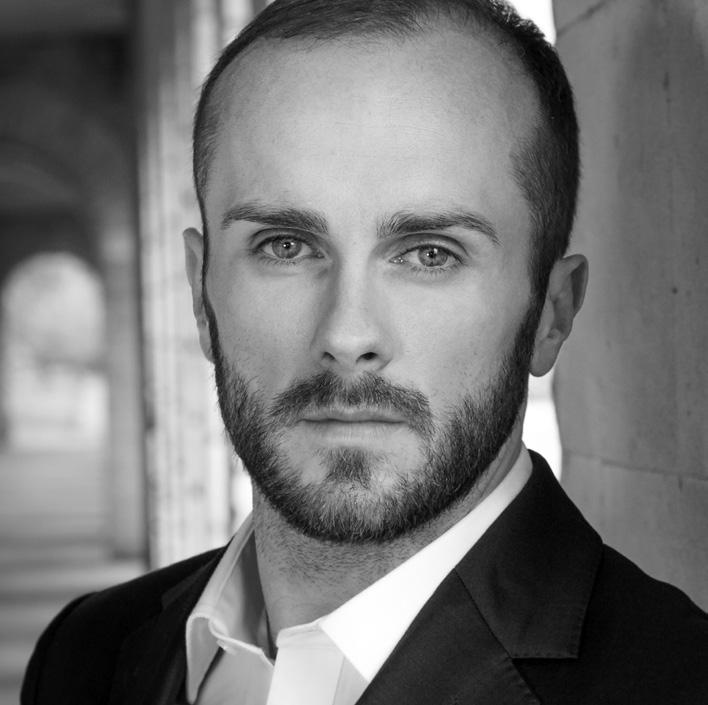
Thomas Walker studied brass at the Royal Scottish Academy of Music and Drama and singing at the Royal College of Music.
This season’s highlights include the Orchestra of the Eighteenth Century and Daniel Reuss; Ensemble Vocal de Lausanne; Arnalta L’incoronazione di Poppea at the Berlin Staatsoper Unter den Linden and the title role in Haydn’s Orfeo with Adam Fischer at Theater an der Wien.
Previous highlights include L’incoronazione di Poppea with Budapest Festival Orchestra and Iván Fischer; Evangelist St Matthew Passion; Bach at Wigmore Hall with Gabrieli Consort and Paul McCreesh; the title role in Handel Belshazzar; Haydn Die Schöpfung; Orff Carmina Burana; Berlioz L’enfance du Christ and Adam in Scarlatti Il Primo Omicidio at Opéra national de Paris and Staatsoper Berlin.
Other roles include Admeto in Gluck Alceste and Rinaldo in Haydn Armida; Rameau Zoroastre at the Komische Oper Berlin; Purcell The Fairy Queen and Rameau Platée for Staatsoper Stuttgart; and Pélleas; Alessandro Il Re Pastore; Quint The Turn of the Screw; Lysander A Midsummer Night’s Dream and Lechmere Owen Wingrave for the Royal Opera House, Covent Garden; English National Opera; Scottish Opera and Innsbrucker Festwochen der Alten Musik.
His recordings include Beethoven Missa Solemnis with Cappella Amsterdam; Honegger Le Roi David with Ensemble Vocal de Lausanne; and Bach Magnificats with Arcangelo and Jonathan Cohen.
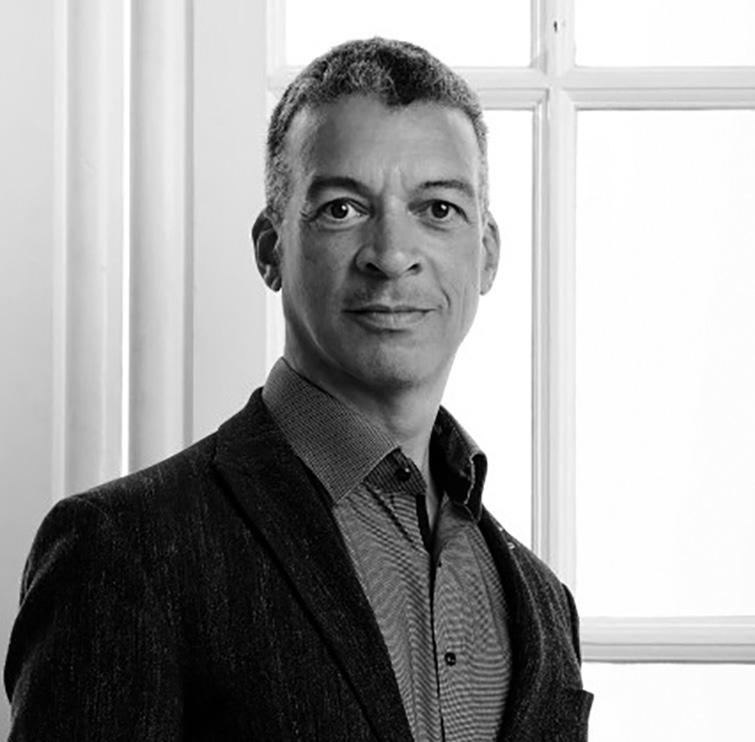
Roderick Williams is one of the most sought after baritones of his generation. He performs a wide repertoire from baroque to contemporary music, in the opera house, on the concert platform and is in demand as a recitalist worldwide.
He enjoys relationships with all the major UK opera houses and has sung opera world premieres by David Sawer, Sally Beamish, Michael van der Aa, Robert Saxton and Alexander Knaifel. Recent and future engagements include the title role in Eugene Onegin for Garsington, the title role in Billy Budd with Opera North, Papageno for Covent Garden, and productions with Cologne Opera, English National Opera, Welsh National Opera and Netherlands Opera.
Roderick sings regularly with all the BBC orchestras and all the major UK orchestras, as well as the Berlin, London and New York Philharmonic Orchestras, Deutsches Symphonie-Orchester Berlin, Orchestre Philharmonique de Radio France, Ensemble Orchestral de Paris, Accademia Nazionale di Santa Cecilia in Rome, Cincinnati Symphony and Bach Collegium Japan amongst others. His many festival appearances include the BBC Proms (including the Last Night in 2014), Edinburgh, Cheltenham, Bath, Aldeburgh and Melbourne Festivals.
Roderick Williams has an extensive discography. He is a composer and has had works premiered at the Wigmore and Barbican Halls, the Purcell Room and live on national radio. In December 2016 he won the prize for best choral composition at the British Composer Awards. From the 2022/23 season he took the position of Composer in Association of the BBC Singers.
He recently completed a three year odyssey of the Schubert song cycles culminating in performances at the Wigmore Hall and has subsequently recorded them for Chandos. Future releases include more Schubert, Schumann in English as well as works by Vaughan Williams.
He was Artistic Director of Leeds Lieder in April 2016, Artist in Residence for the Royal Liverpool Philharmonic Orchestra from 2020/21 for two seasons and won the RPS Singer of the Year award in May 2016. He was awarded an OBE in June 2017.
Chorus Director
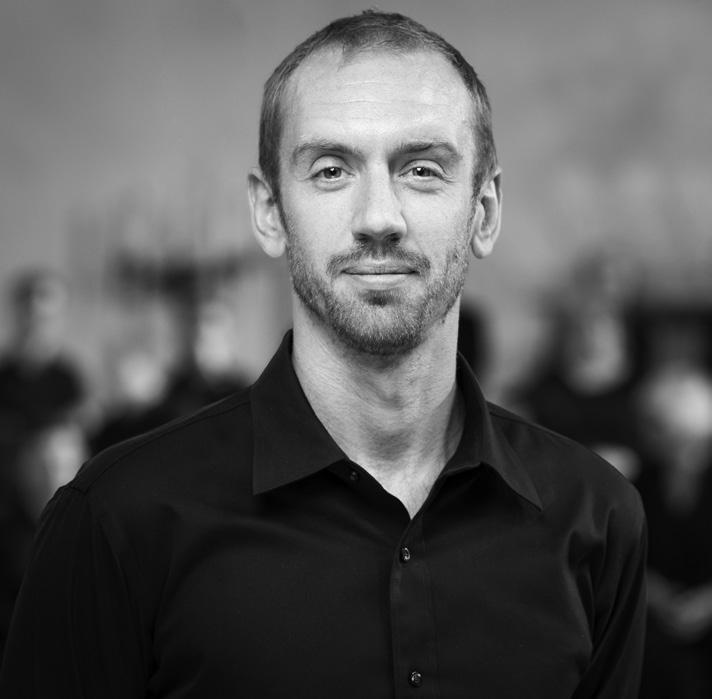
Gregory Batsleer is acknowledged as one of the leading choral conductors of his generation, winning widespread recognition for his creativity and vision. Since taking on the role of SCO Chorus Director in 2009 he has led the development of the Chorus, overseeing vocal coaching, the SCO Young Singers’ Programme and the emergence of regular a capella concerts. As well as preparing the Chorus for performances with the Orchestra, he has directed their recent successful appearances at the East Neuk, Glasgow Cathedral and St Andrews Voices Festivals, at Greyfriars Kirk, and on the SCO’s 2022 Summer Tour.
In 2021 Gregory took up the position of Festival Director for the London Handel Festival. He leads the programming and development of the Festival, fulfilling its mission to bring Handel’s music to the widest possible audiences. Since 2017 he has been Artistic Director of Huddersfield Choral Society and was Chorus Director with the Royal Scottish National Orchestra from 2015 - 2021.
As Guest Conductor Gregory has worked with many of the UK’s leading orchestras and ensembles. Recent highlights include performances with the Royal Northern Sinfonia, RSNO, National Youth Choir of Great Britain, Orchestra of Opera North, Manchester Camerata, Royal Liverpool Philharmonic Orchestra, English Chamber Orchestra and London Symphony Chorus, as well as SCO.
From 2012 to 2017, he was Artistic Director of the National Portrait Gallery’s Choir in Residence programme, the first ever in-house music programme of any gallery or museum in the world. He has curated and devised performances for the Southbank Centre, Wilderness Festival and Latitude and collaborated with leading cultural figures across a variety of different art forms. Gregory is the co-founder and conductor of Festival Voices, a versatile ensemble dedicated to cross-art collaboration.
As a non-executive director, Gregory sits on the board of Manchester Camerata. His outstanding work as a choral director was recognised with the 2015 Arts Foundation’s first-ever Fellowship in Choral Conducting.
Gregory’s Chair is kindly supported by Anne McFarlane
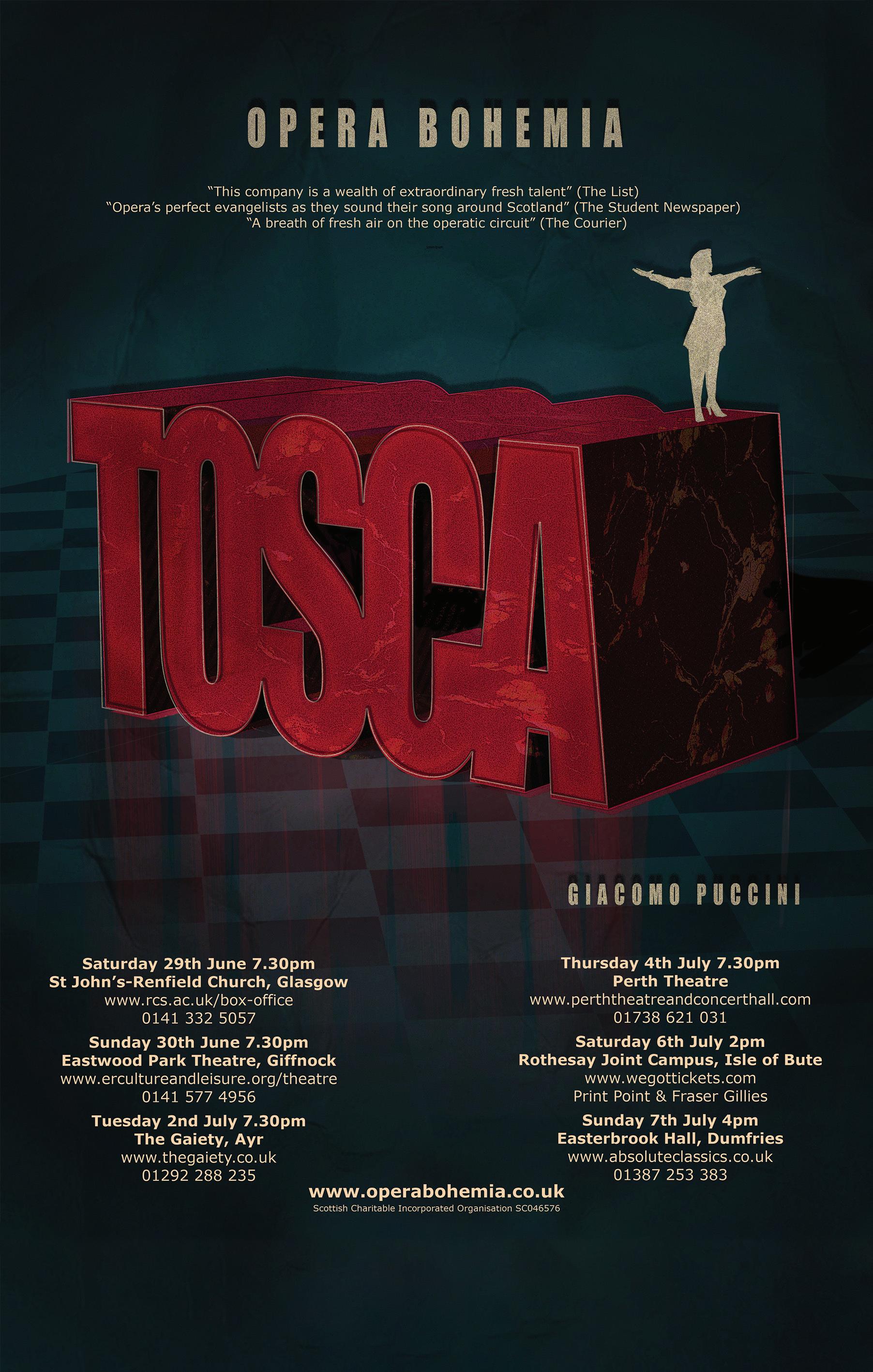
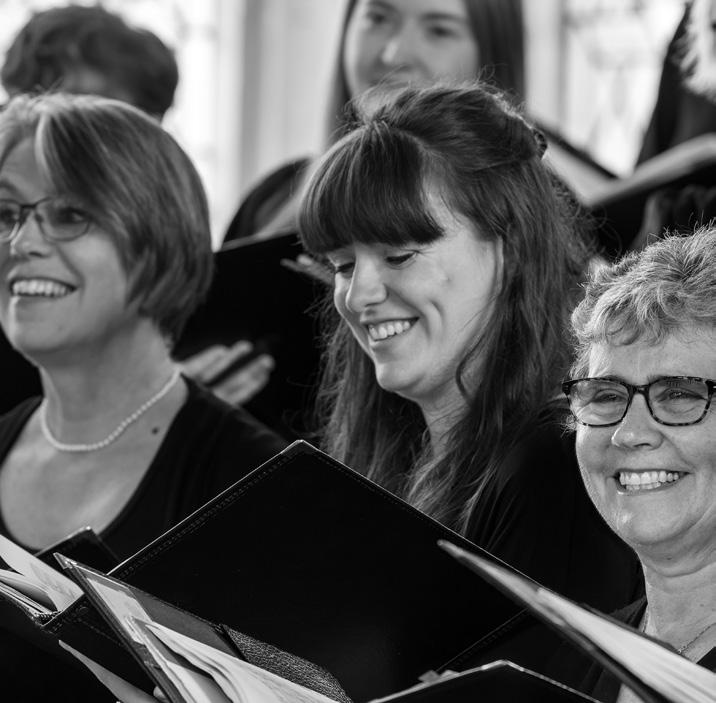
The Scottish Chamber Orchestra Chorus, under the direction of Gregory Batsleer since 2009, has built a reputation as one of Scotland’s most vibrant and versatile choirs. Widely regarded as one of the finest orchestral choruses in the UK, it celebrated its 30th anniversary in 2021.
Members enjoy the unique opportunity to perform with one of the world’s leading chamber orchestras, working with international conductors including Maxim Emelyanychev, Harry Christophers, Richard Egarr, Andrew Manze, John Storgårds and Sir James MacMillan.
The Chorus appears regularly with the Orchestra in Scotland’s major cities. Recent concerts have covered a wide range of music including Handel Coronation Anthems, Stravinsky Mass, Handel Messiah and Theodora, Haydn Seasons and Creation, a rare performance of Vaughan Williams Flos Campi and the premiere of The Years by Anna Clyne, SCO Associate Composer 2019-2022. The world premiere of Composed in August by Sir James MacMillan, was one of this Season's highlights.
The SCO Chorus also appears on its own in a capella repertoire, both digital and live, including an acclaimed performance of Tallis’ Spem in Alium at Greyfriars Kirk in 2020, and concerts as part of the SCO’s 2022 Summer Tour including the premiere of Anna Clyne’s The Heart of Night. Its annual Christmas concerts have quickly established themselves as a Season highlight.
Other notable out-of-Season appearances have included critically-acclaimed performances with the SCO at the BBC Proms in Handel’s Jephtha in 2019 and in Mendelssohn's Elijah in 2023. Also in 2023, the Chorus appeared at the Edinburgh International Festival in a semi-staged performance of Mozart's Die Zauberflöte conducted by Maxim Emelyanychev.
Our Young Singers' Programme was established in 2015 to nurture and develop aspiring young singers. It is designed for young people with a high level of choral experience and ambitions to further their singing with a world-class ensemble.
Further information at sco.org.uk
The SCO Chorus Young Singers' Programme is kindly supported by the Baird Educational Trust.
Gregory Batsleer
Chorus Director
Stuart Hope
Associate Chorusmaster
Alan Beck
Voice Coach
Emma Morwood
Voice Coach
Susan White
Chorus Manager
* Young Singers' Programme
†Semi-chorus
Kirstin Anderson
Naomi Black†
Joanna Burns
Maria Campbell
Morven Chisholm
Joanne Dunwell
Lucy Forde
Emily Gifford
Nicola Henderson†
Caroline Hood
Lesley Mair
Katie McGlew†
Jenny Nex†
Ciara O'Neill*
Annike Petin
Alison Robson
Kotryna Starkutė†
Alison Williams
Emily Zehetmayr*
Shona Banks
Dinah Bourne
Sarah Campbell
Gill Cloke†
Judith Colman
Liberty Emeny
Anne Gallacher
Jennie Gardner
Claire Goodenough
Holly Gowen* †
Anne Grindley
Caroline Hahn
Lorna Htet-Khin†
Melissa Humphreys
Elizabeth McColl
Morven McIntyre*†
Hilde McKenna
Charlotte Perkins†
Linda Ruxton
Richard Allison
Matthew Andrews†
Andrew Carvel†
Ben Evans†
David Ferrier†
Colin French
Peter Hanman
Fraser Macdonald*
Keith Main
David Nelson†
Matt Norriss
Conor Quinn
Michael Scanlon†
Paul Vaughan
Alexander Vonderschmidt
BASS
Gavin Easton†
Luke Francis*†
Matthew FultonPeebles†
Hugh HillyardParker
Aidan Horner
David Ireland
Donald MacLeod
Sandy Matheson†
Richard Murphy
Kenneth Murray
Douglas Nicholson
David Paterson
Jonathan Pryce
Fraser Riddell†
Peter Silver
Stephen Todd
Alex White†
David Wilkinson
Roderick Wylie
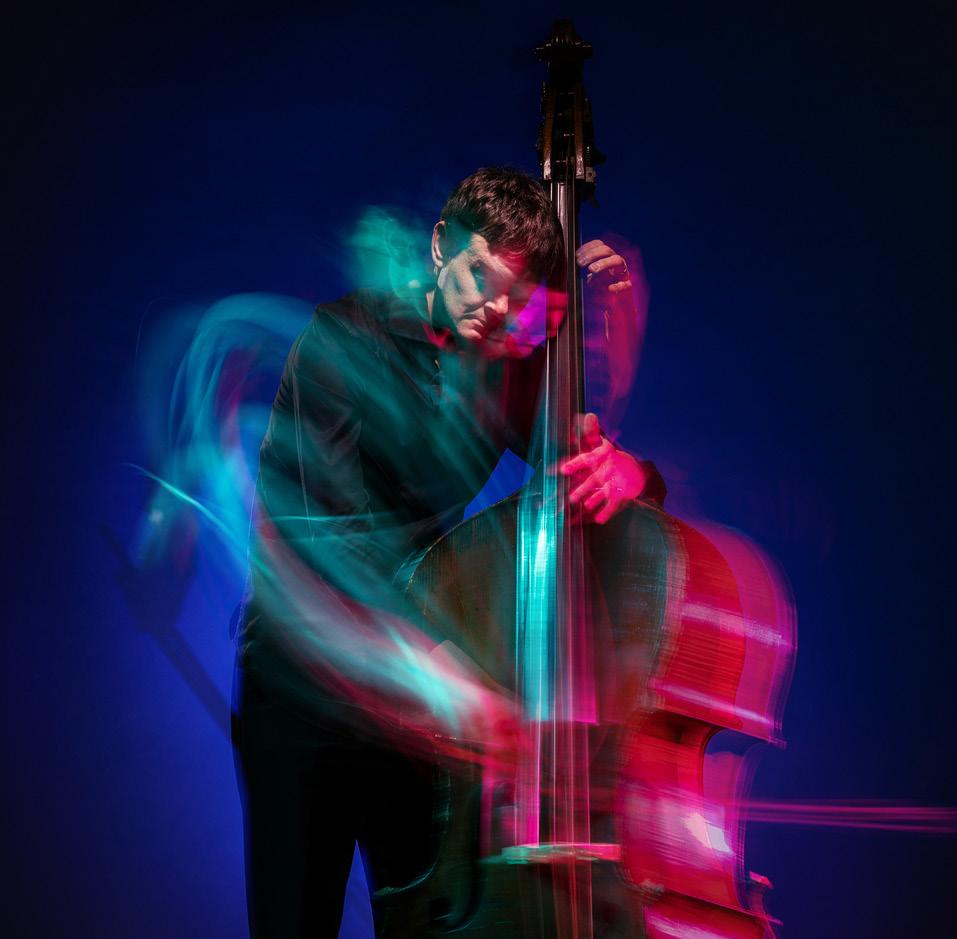
The Scottish Chamber Orchestra (SCO) is one of Scotland’s five National Performing Companies and has been a galvanizing force in Scotland’s music scene since its inception in 1974. The SCO believes that access to world-class music is not a luxury but something that everyone should have the opportunity to participate in, helping individuals and communities everywhere to thrive. Funded by the Scottish Government, City of Edinburgh Council and a community of philanthropic supporters, the SCO has an international reputation for exceptional, idiomatic performances: from mainstream classical music to newly commissioned works, each year its wide-ranging programme of work is presented across the length and breadth of Scotland, overseas and increasingly online.
Equally at home on and off the concert stage, each one of the SCO’s highly talented and creative musicians and staff is passionate about transforming and enhancing lives through the power of music. The SCO’s Creative Learning programme engages people of all ages and backgrounds with a diverse range of projects, concerts, participatory workshops and resources. The SCO’s current five-year Residency in Edinburgh’s Craigmillar builds on the area’s extraordinary history of Community Arts, connecting the local community with a national cultural resource.
An exciting new chapter for the SCO began in September 2019 with the arrival of dynamic young conductor Maxim Emelyanychev as the Orchestra’s Principal Conductor. His tenure has recently been extended until 2028. The SCO and Emelyanychev released their first album together (Linn Records) in November 2019 to widespread critical acclaim. Their second recording together, of Mendelssohn symphonies, was released in November 2023.
The SCO also has long-standing associations with many eminent guest conductors and directors including Andrew Manze, Pekka Kuusisto, François Leleux, Nicola Benedetti, Isabelle van Keulen, Anthony Marwood, Richard Egarr, Mark Wigglesworth, Lorenza Borrani and Conductor Emeritus Joseph Swensen.
The Orchestra’s current Associate Composer is Jay Capperauld. The SCO enjoys close relationships with numerous leading composers and has commissioned around 200 new works, including pieces by Sir James MacMillan, Anna Clyne, Sally Beamish, Martin Suckling, Einojuhani Rautavaara, Karin Rehnqvist, Mark-Anthony Turnagem, Nico Muhly and the late Sir Peter Maxwell Davies.
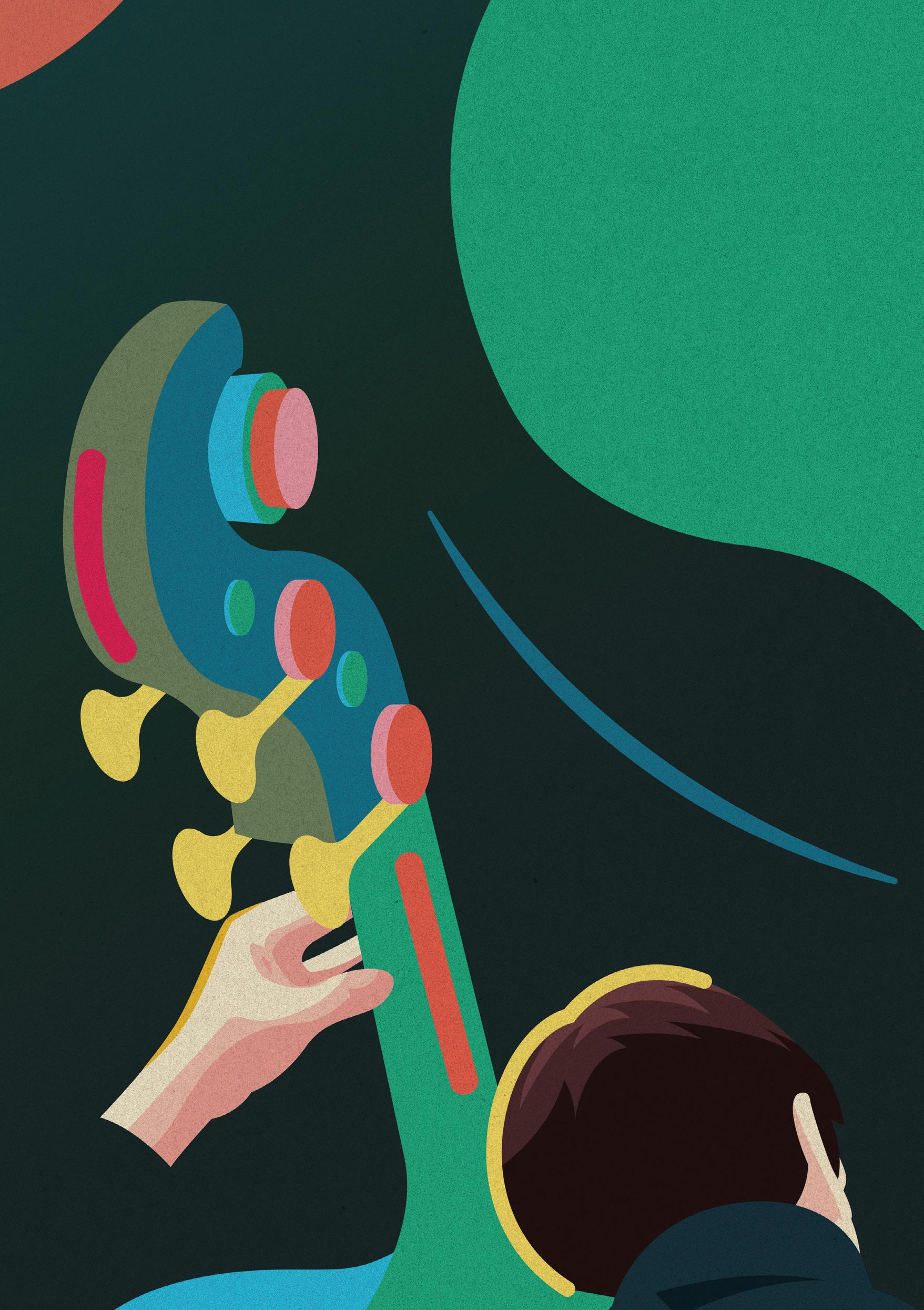

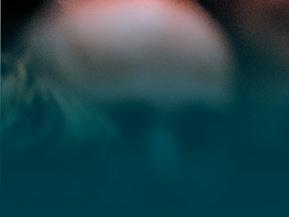




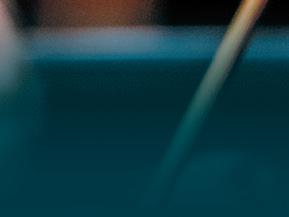






Quilter Cheviot is a proud supporter of the Benedetti Series 2023, in partnership with the Scottish Chamber Orchestra. The extension of our partnership continues to show our commitment in supporting culture and the arts in the communities we operate.
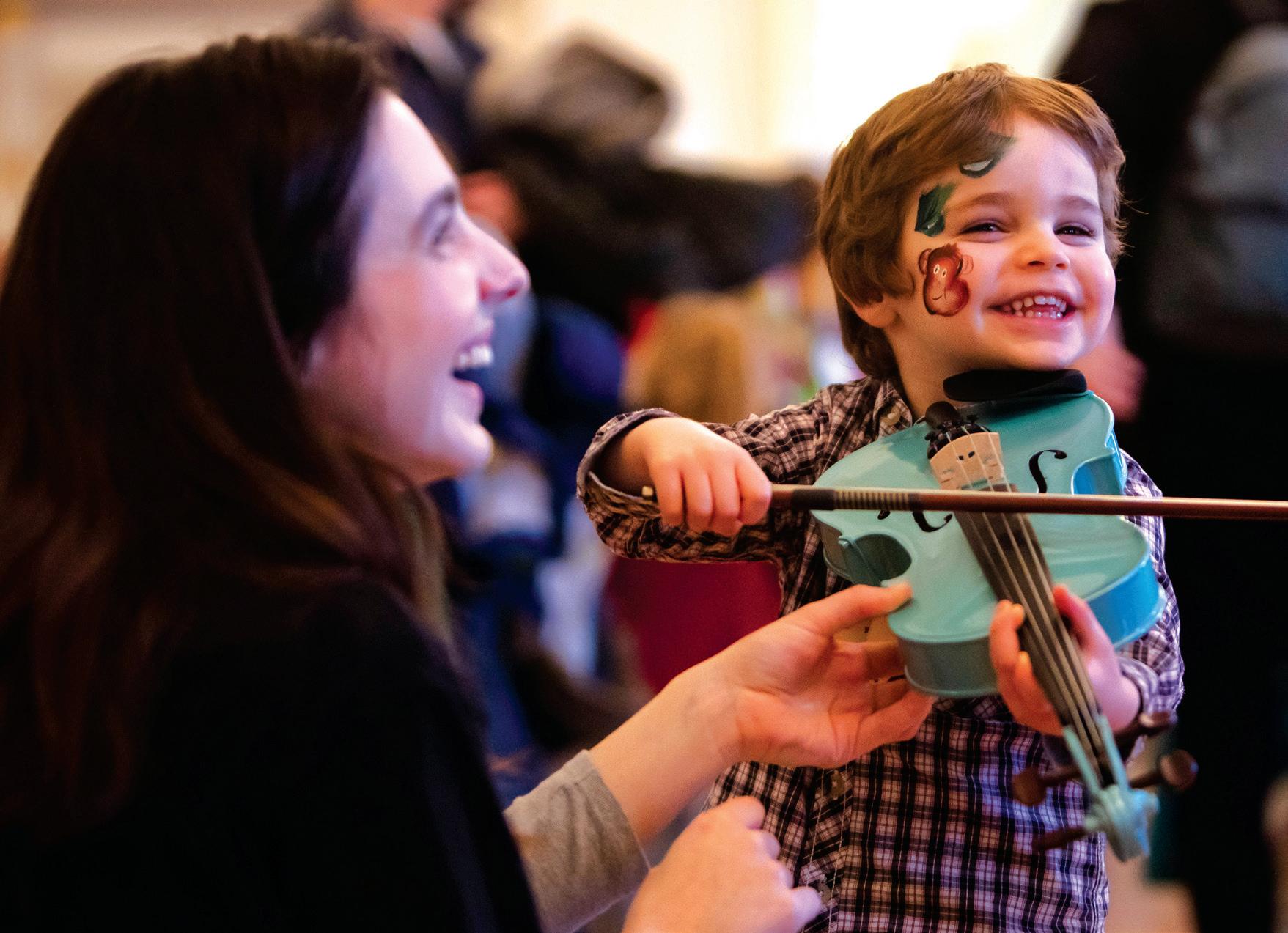
For 50 years, the SCO has inspired audiences across Scotland and beyond.
From world-class music-making to pioneering creative learning and community work, we are passionate about transforming lives through the power of music and we could not do it without regular donations from our valued supporters.
If you are passionate about music, and want to contribute to the SCO’s continued success, please consider making a monthly or annual donation today. Each and every contribution is crucial, and your support is truly appreciated.
For more information on how you can become a regular donor, please get in touch with Hannah Wilkinson on 0131 478 8364 or hannah.wilkinson@sco.org.uk